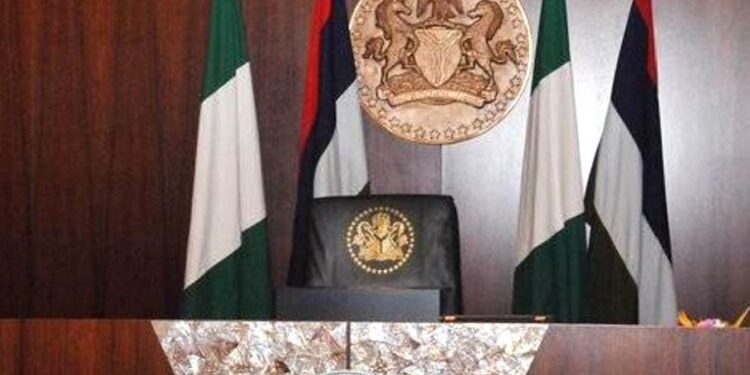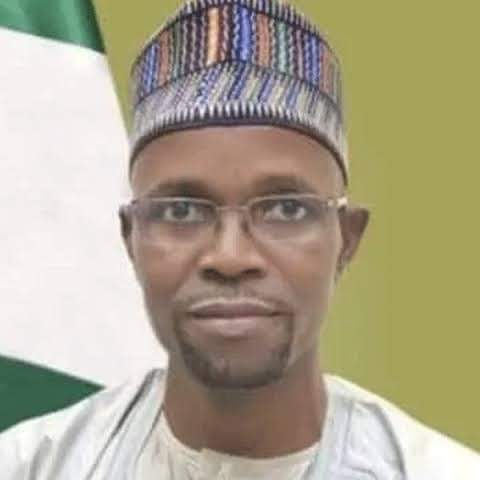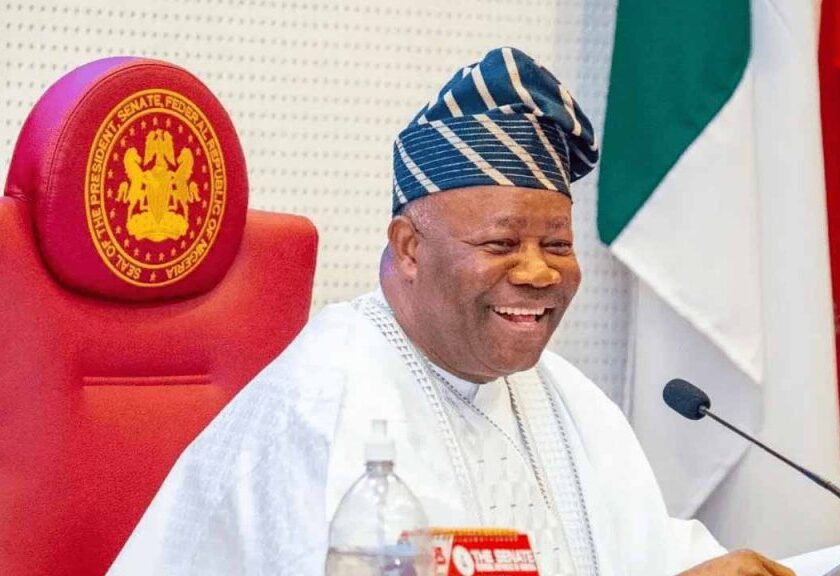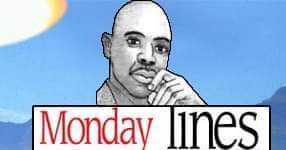The Department of State Services (DSS) is an interesting organization. It is one place the citizens love to hate. The body thrives on Reverse Psychology and gaslighting, saying one thing and meaning the exact opposite and making the citizens doubt and blame themselves for the failures of their leaders. Inimitable also is their ambivalence and amorphous deception in the line of duty and secrecy. Their operatives do as they like, answerable to none but the President and to the President alone. Their allegiance is therefore not to the country or the Constitution. Their patriotism means standing with the President, even when the President is standing against the country.
And the President in our clime is concerned only for his self-preservation. All the talk about the so-called national interest is about the self-preservation of the President and his interest and the interests of the few that hold the reins of power with him. These interests play up the most in elections. The interest of the President and the power donors he represents dominate the succession plan at all levels. Citizens be damned!
From the appointment of the head of the electoral commission and its entire management team, the President, the power holders, and power donors carefully select the most pliable hands who will deliver either as instructed or as they may read from the body language of their appointors.
From the foregoing, one can see that it was an aberration for a certain Dr. Goodluck Jonathan to thump his chest and say, “I never knew Atahiru Jega before I appointed him”. Jonathan was simply being naive. Some persons usurped his powers and forced his hands to appoint Jega, who of course did the bidding of those unseen hands and priced power out of the erstwhile President’s hand.
Buhari did not make that mistake. He carefully chose Professor Mahmood Yakubu, a product of the establishment in his capacity as an executive secretary of TETFund. Something emblematic about establishment persons is that they are experts in reading the body language of their principals even when they do not want to speak directly to them.
The great preparations and build-up to the 2023 general election were such as to make the outcome the best election ever in the annals of the nation’s electoral history. To ensure this about N400 bn was committed to ensuring that all aspects and all stones were not left unturned. The enabling law (Electoral Act 2022) was also put in place by the National Assembly and the President graciously signed it into law.
Yet, as early as October 2022, facts began to emerge that INEC had abandoned the elaborate plans to ensure the electronic transfer of results in real-time. Professor Yakubu addressed a press conference that November to reassure Nigerians that results would be transmitted in real-time in line with the extant Electoral Act 2022 Section 64(4) and Electoral Guidelines para 38.
Loquacious Festus Okoye issued a press statement reiterating and reechoing Professor Yakubu’s press conference at the same time. Yet, both men led the Commission to abandon everything and resorted to manual collation as obtained in the Electoral Act 2010 and shut down INEC’s IReV at the nick of time to cut off real-time monitoring of the results by the stakeholders and political parties. To complete the impunity and subterfuge, Prof Yakubu refused to attend to official complaints and utilise the one-week window created for the Commission in the Electoral Act for that purpose before declaring the winner.
“Go to court,” was all Yakubu and the President had to arrogantly offer to opposition parties and millions of Nigerians who felt deceived and betrayed by INEC. They say this as if the Judiciary was not there before INEC was set up to organise and supervise elections in Nigeria. Maybe the next electoral reforms should simply hand over the task of organising elections to the Supreme Court of Nigeria since it’s the Judiciary that has been determining outcomes or winners in our elections since 1999 when the country returned to the current democratic dispensation. INEC has since lost its essence and Nigerian democracy is now better off without it. This is no longer the Electoral Commission once led by men of impeccable character like Prof Eme Awa and Prof Humphrey Nwosu.
That is the background that has led to the present quagmire. This has led to unpreceded protests, which have seen some mothers go completely naked and half-naked to drive home their frustration and disgust.
More importantly, there is a rising strident call for an Interim National Government (ING), to hold forth till the Tribunal and the Supreme Court determine the winner of the February 25th presidential election.
Unfortunately, ING is unknown to the Nigerian laws and the President lacks the power to impose an InG as Ibrahim Badamasi Babangida did as a military head of state in 1993. The 1999 Constitution has a clear succession plan and tenure elongation of the incumbent government under extraneous circumstances. The senate president being suggested by some to take over in the interim can only come in if the President and Vice resign together or die in office (God forbid) or are impeached. Even this will not produce an Interim government because the senate president can only stay for the remainder of the tenure of the President and Vice replaced.
In the case of a national emergency, NASS can however declare a state of emergency and elongate the tenure of the government (Executive and Legislature) for the initial 6 months. The Doctrine of Necessity invoked by NASS under David Mark as senate president in 2010 to cause the swearing in of Dr. Goodluck Jonathan as President during the Yar’Adua health and death saga does also not mirror the dire situation confronting the nation at the moment.
The position of the law, therefore, is that the President-elect Asiwaju Bola Ahmed Tinubu will be sworn in as substantive President and will remain so unless otherwise declared by the Supreme Court. The fear that he would deploy instruments of the state to ensure that he retains power is germane but unfortunately, that is what is legally plausible left for Nigerians.
That is the scenario the DSS is reacting to and confirming the plot for an Interim National Government by those the Service has angrily described. The Service says the plot, which is being pursued by some entrenched interests, is not only an aberration but a mischievous way to set aside the Constitution and undermine civil rule as well as plunge the country into an avoidable crisis.
The Service also claimed that planners have weighed various options, which included sponsoring endless violent mass protests in major cities to warrant a declaration of a State of Emergency and obtaining frivolous court injunctions to forestall the inauguration of new executive administrations and legislative houses at the Federal and State levels.
Assuming these allegations are true, are these options being pursued not legitimate in a democracy i.e. organising protests and going to court for redress?
Weighed from a Reverse Psychology perspective, what the DSS is doing is anti-democratic and tantamount to gagging the people and the Judiciary. The DSS mandate does not include determining which court orders are frivolous. Any frivolous order will certainly be set aside by the two appellate courts of the land – the Court of Appeal and the Supreme Court. After all, both INEC and the President asked those not satisfied with the outcomes of the February 25th election to go to court, and to court, they have gone. So, why the hullabaloo?
More importantly, stopping the people from protesting within the laws of the land is also antithetical to the ethos and tenets of democracy. Or, are the DSS and its principals saying Nigerians must accept Bola Tinubu as their president whether they elected him or not?
Opposition political parties and indeed the Nigerian people need their political space and democratic rights to vent and test the validity of the election of Bola Tinubu. The DSS ought to know that the issue is not whether the election was peaceful in most parts of the country or that Tinubu is the beneficiary of the opaque process. They ought to worry that officially up to 27 fellow Nigerians died and that is hardly a good definition of a peaceful election and the seeming deliberate blindfolding of Nigerians ought to be peacefully challenged to avoid a repeat of such a heist in the future and possible truncation of democracy.
The Service is aware that till today, all the polling units’ results are yet to be uploaded by INEC to the IReV. Yet the uploaded results are a condition precedent to results’ collation and declaration. Despite this, a President-elect has been declared and about to be sworn in. In civilised climes, Professor Mahmood and his management team ought to be in the DSS office answering pertinent questions. But unfortunately, it is the victims of their subversive activities that are being hounded by the DSS. This is what is regarded as a means-end inversion in psychology. It is Gas lighting – brazenly lying to Nigerians to manipulate, and ultimately control and make them scapegoats using coercion.
The Service is therefore blaming and taking it out on the victims – Nigerians. It ought not to be for the sake of posterity!
· Dr Law Mefor is a senior fellow of The Abuja School of Social and Political Thought; Tel.: +234- 905 642 4375; e-mail: [email protected]; follow me on Twitter :@DrLawMefor1.





